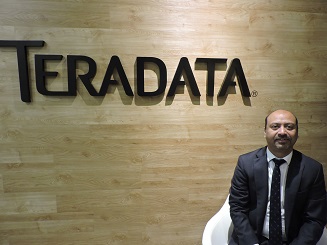
Big Community was privileged once again to interview a giant in the data analytics and big data field, Teradata. On hand to answer our questions was Country Manager, Saqib Sabah.
Teradata is a company that develops and sells a relational database management system (RDBMS) with the same name. Their data warehouse system stores and manages data using a ‘shared nothing’ architechture with every node possessing its own memory and power. Text analytics are used to track unstructured data in word processor documents and semi-structured data.
Teradata’s product is also used for business analysis, allowing data warehouses to track company data, such as sales, customer preferences and product placement.
We queried Saqib on how Asean countries are stacking up in big data adoption in comparison with the other parts of the world. He sees there is a growing belief within the region towards big data adoptions. With more data then comes more responsibility in governing those data.
“How do we make sure data is managed in a proper way and companies are not lost”, he says adding that it is important to look at the architecture that goes into managing the data that are going into those companies.
With the many initiatives being spearheaded by the government in bringing the digital technology into the country, thus building up its infrastructure. Saqib believes that the more data scientists we have in the country and in the organisation, the faster the adoption of those technologies will take place.
“We are still lacking in talent within the organisations we come across. I think there is a huge potential there with the opportunity and demand from the organisations”, he added. Having the right expertise in n organisation who knows how to organise and manage their data will be a great advantage to adopting big data on the fly.
However, the speed at which data scientists are being produced leave to question if at all they are equipped to lead a team into pretty much unchartered territory in terms of where the company will be headed within its own scope of the digital era.
Sadiq agrees but puts a point across that although he isn’t aware of the curriculum that the students are receiving within the ‘crash course’, he believes the right path would be for them to be partnered with senior data scientists.
“There’s a bandwagon effect going on now within the industry. It is a good starting point for students to add on additional skills if they already have a business understanding”. Although he adds that having a crash course program to train data scientists is not the answer to fill the void of demand.
The know-how needed for students to have in a business environment, can only be acquired through years of actual work. This will still be a missing ingredient to future data scientists if it is not addressed soon.
Sadiq however believes that it is a good initiative in growing the industry to reach its full potential as things are moving very fast, therefore having structure and governance will not be an easy task. Though it may not be the perfect solution, it is a good initiative to start with.
 (0)
(0) (0)
(0)Archive
- October 2024(44)
- September 2024(94)
- August 2024(100)
- July 2024(99)
- June 2024(126)
- May 2024(155)
- April 2024(123)
- March 2024(112)
- February 2024(109)
- January 2024(95)
- December 2023(56)
- November 2023(86)
- October 2023(97)
- September 2023(89)
- August 2023(101)
- July 2023(104)
- June 2023(113)
- May 2023(103)
- April 2023(93)
- March 2023(129)
- February 2023(77)
- January 2023(91)
- December 2022(90)
- November 2022(125)
- October 2022(117)
- September 2022(137)
- August 2022(119)
- July 2022(99)
- June 2022(128)
- May 2022(112)
- April 2022(108)
- March 2022(121)
- February 2022(93)
- January 2022(110)
- December 2021(92)
- November 2021(107)
- October 2021(101)
- September 2021(81)
- August 2021(74)
- July 2021(78)
- June 2021(92)
- May 2021(67)
- April 2021(79)
- March 2021(79)
- February 2021(58)
- January 2021(55)
- December 2020(56)
- November 2020(59)
- October 2020(78)
- September 2020(72)
- August 2020(64)
- July 2020(71)
- June 2020(74)
- May 2020(50)
- April 2020(71)
- March 2020(71)
- February 2020(58)
- January 2020(62)
- December 2019(57)
- November 2019(64)
- October 2019(25)
- September 2019(24)
- August 2019(14)
- July 2019(23)
- June 2019(54)
- May 2019(82)
- April 2019(76)
- March 2019(71)
- February 2019(67)
- January 2019(75)
- December 2018(44)
- November 2018(47)
- October 2018(74)
- September 2018(54)
- August 2018(61)
- July 2018(72)
- June 2018(62)
- May 2018(62)
- April 2018(73)
- March 2018(76)
- February 2018(8)
- January 2018(7)
- December 2017(6)
- November 2017(8)
- October 2017(3)
- September 2017(4)
- August 2017(4)
- July 2017(2)
- June 2017(5)
- May 2017(6)
- April 2017(11)
- March 2017(8)
- February 2017(16)
- January 2017(10)
- December 2016(12)
- November 2016(20)
- October 2016(7)
- September 2016(102)
- August 2016(168)
- July 2016(141)
- June 2016(149)
- May 2016(117)
- April 2016(59)
- March 2016(85)
- February 2016(153)
- December 2015(150)
